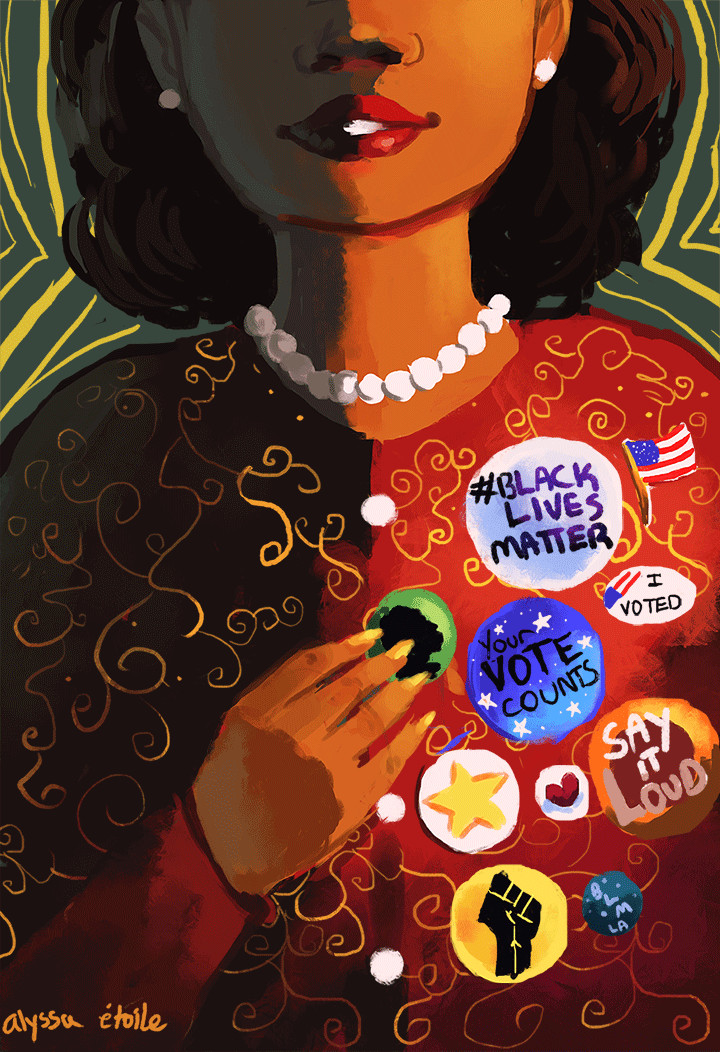Why It's Not Always So Easy to Just "Go Out And Vote"
Elections have consequences. We know this. From countries in Eastern Europe moving further to the right, to my hometown province of Ontario electing an anti-progressive party, to Brexit, to the Kavanaugh nomination. Who you vote for truly changes the landscape of a county, city, province, state, and country. But who votes and if they vote at all can make a much bigger difference.
Thanks to institutionalized violence and barriers against poorer people and people of color, many people don't even make it to the polls to have their ballots counted. Lack of clear paths to ballot boxes, barriers like former convicts not being able to vote, and access to things like childcare so that parents and guardians (many being women) can actually go to cast their votes really changes who's actually doing the voting. You can probably now see why saying "go vote then!11!!!1!" when someone talks about things like the current American president is not such a great idea.
The main problem with using the caveat of voting is not the sentiment itself, but when it is used. One, when "get out and vote" is used, it ignores the things we mentioned earlier. Two, the phrase "get out and vote" is used to counter many protests put on by progressive folks. Many people wield the whole voting thing in an attempt to gaslight activists into being more "civil". The train of thought goes like this... "Don't lecture Trump or his supporters, don't bother trying to reach them, just go out and vote". This not only absolves Trump, his supporters, and his enablers in the media and other aspects of the government of responsibility but creates this false narrative that everything can be changed with a vote, and protest is somewhat futile. It completely ignores the fact that the protest really is capable of making a legitimate change. When it comes to fixing things and looking at what a world post-Donald Trump would look like, voting cannot be seen as a silver bullet, because many of the problems we face today stem from problems that came before the era of Trump.
We should probably delve into the complicated history behind voting before we go any further. In order to fully appreciate voting, there is nuance needed because we speak about voting in such vague terms. Many groups of marginalized people have had voter suppression carried out against them, and have had to fight for their governments to honor the "taxation with representation" aspect of civil society. If you pay the government dues, then the understanding is that the government will recognize that and allow your voice to be heard via vote.
However, history has proven that this standard has not always been upheld. In many countries, many ethnic and racial minorities have always been cut out of this deal. Sometimes, they are given the ability to vote (think African Americans and Indigenous Canadians) but are faced with barriers like strict voter ID laws and marginalization in rural areas by not having polling stations. Not to mention that in many countries, if you are convicted of even a small crime, your right to vote is taken from you. If you take that point and pair it with the fact that the industrial prison system preys on the most vulnerable communities in Western countries, you realize that the justice system has weaponized again, this time to rob people of a civic opportunity. If you insist on telling people to "go out and vote!" then fighting for access to voting should be at the top of your political agenda. Anything less would make you part of the problem.
Then comes the argument that people use voting to dismiss protests. From the Women's March around the world to the fight for Healthcare in the U.S, to the fight against censuring the Ontario education system in Canada, many critics have taken it upon themselves to shut down protestors by asking them to "not go about it this way" or "be civil!". These sentiments not only prioritize the feelings of those in the position of the oppressor, but it also dismisses the entire rich history of effectiveness that protest has on elected officials and the decisions they make. A huge part of this phenomena is the part in which people also blame non-voters for political wins by right-wing groups and actors. Usually, the response to defeating ugly political circumstances like Donald Trump is to go out and vote. In fact, anytime a major shift to the right happens, and a rollback of rights or progress occurs, the fault is almost always on the groups of people who didn’t vote. This way, the conversation becomes more about people getting out to vote, and less about politicians giving them a reason to.
This election season, regardless of where you are in the world, don't ask people to go out and vote but ask how we make voting more accessible, and what we can learn from those who were finally granted the vote, and those who still yet to be recognized as full citizens.
__________________________
Banner Artwork by Alyssa Etoile
